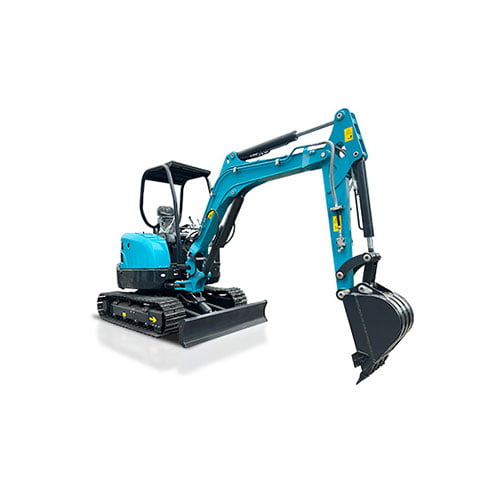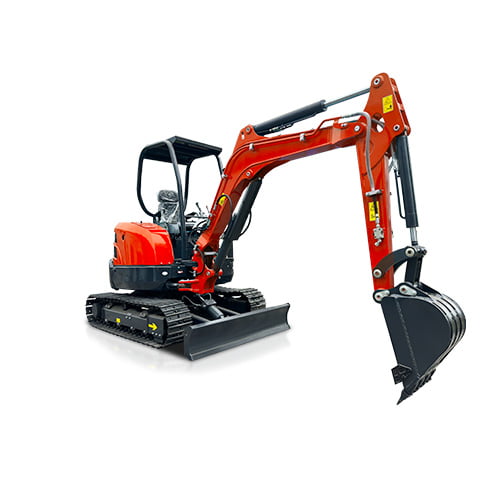Welcome to My Blog!
Before we dive into the content, I’d love for you to join me on my social media platforms where I share more insights, engage with the community, and post updates. Here’s how you can connect with me:
Facebook: https://www.facebook.com/profile.php?id=100072217509763
LinkedIn: https://www.linkedin.com/company/74949059/admin/dashboard/
YouTube:www.youtube.com/@tractormanufacturer-lc5qz,www.youtube.com/@excavatormanufacturers-sn9hk
TikTok: www.tiktok.com/@tractormanufacturer, www.tiktok.com/@excavatormanufacturers
Now, let’s get started on our journey together. I hope you find the content here insightful, engaging, and valuable.
Introduction

Are you a homeowner, landscaper, or small contractor looking to tackle excavation projects with precision and efficiency? A 3 ton mini excavators is the perfect tool for the job. These compact machines offer incredible versatility and power, making them ideal for a wide range of applications. From digging trenches and foundations to landscaping and demolition, a 3 ton mini excavators can handle it all. In this comprehensive guide, we’ll explore the key factors to consider when choosing a 3 ton mini excavators, review some of the top models on the market, and provide valuable tips for maximizing your investment.
Understanding 3 Ton Mini Excavators
A 3 ton mini excavators is a small, tracked machine designed for earthmoving and digging tasks in confined spaces. These machines are typically powered by diesel or electric engines and offer a range of attachments, such as buckets, breakers, and augers, to increase their versatility.
Key features to consider when selecting a 3 ton mini excavators:
- Operating Weight: While the weight of a 3-ton excavator is relatively standard, variations can affect its stability and digging power. A heavier machine may offer greater stability, but it may also be more difficult to transport.
- Digging Depth and Reach: These specifications determine the size of trenches and holes you can excavate. A deeper digging depth is ideal for basement excavations and foundation work, while a longer reach is useful for digging trenches along fences or property lines.
- Engine Power: A more powerful engine will provide greater digging force and hydraulic flow, allowing you to tackle tougher jobs more efficiently. However, a more powerful engine may also increase fuel consumption and operating costs.
- Hydraulic System: The efficiency of the hydraulic system directly impacts the machine’s performance and responsiveness. A well-designed hydraulic system will provide smooth and precise control of the excavator’s movements.
- Operator Comfort: A comfortable cab and controls can improve productivity and reduce operator fatigue. Features such as adjustable seats, ergonomic controls, and ample legroom can make a significant difference in operator comfort.
- Attachments: Consider the types of attachments available for the excavator, such as buckets, breakers, and augers. A variety of attachments can expand the machine’s capabilities and allow you to handle a wider range of tasks.
Benefits of Using a 3 Ton Mini Excavators
- Versatility: 3 ton mini excavators can perform a wide range of tasks, making them a valuable asset for contractors, landscapers, and homeowners. Whether you need to dig a foundation, landscape a yard, or clear debris, a mini excavator can handle the job.
- Maneuverability: Their compact size allows them to work in tight spaces and navigate obstacles with ease. This makes them ideal for working in urban areas, residential properties, and other confined environments.
- Efficiency: Mini excavators are generally fuel-efficient and require less maintenance than larger machines. This can help reduce operating costs and minimize downtime.
- Cost-Effective: Compared to larger excavators, 3-ton models are more affordable to purchase and operate. This makes them a great option for small businesses and homeowners on a budget.
Popular 3 Ton Mini Excavators Brands
- Bobcat: Known for their compact size and excellent maneuverability, Bobcat mini excavators are a popular choice for contractors and homeowners.
- Kubota: Offering a wide range of mini excavators with various features and options, Kubota is a trusted brand in the construction industry.
- Komatsu: Renowned for their durability and reliability, Komatsu mini excavators are built to last.
- Yanmar: Providing fuel-efficient and environmentally friendly models, Yanmar mini excavators are a great choice for eco-conscious operators.
- Takeuchi: Offering a good balance of performance and affordability, Takeuchi mini excavators are a popular choice for budget-minded buyers.
Factors to Consider When Choosing a Brand
- Reputation: Research the brand’s reputation for quality, reliability, and customer service. Look for brands with a strong track record of producing reliable and durable equipment. A reputable brand is more likely to offer excellent customer support and readily available parts.
- Dealer Support: Consider the availability of dealers and service centers in your area. A strong dealer network can provide timely maintenance, repairs, and parts. Having a dealer nearby can save you time and money, especially in case of breakdowns or unexpected issues.
- Warranty: A comprehensive warranty can provide peace of mind. Look for a warranty that covers both parts and labor, and consider extended warranty options. A good warranty can protect your investment and reduce the cost of ownership.
- Resale Value: If you plan to sell the excavator in the future, consider its resale value. A well-maintained machine from a reputable brand is likely to retain its value better than a lesser-known or poorly maintained model.
Tips for Operating a 3 Ton Mini Excavators
- Read the Operator’s Manual: Before operating the excavator, carefully read the operator’s manual to familiarize yourself with the controls, safety procedures, and maintenance requirements.
- Start Slowly: Begin by practicing basic maneuvers in a safe, open area. Gradually increase your speed and complexity as you gain confidence.
- Maintain Proper Posture: Sit upright and keep your back straight to reduce fatigue and strain.
- Use the Bucket as a Counterweight: When working on slopes, use the bucket to counterbalance the machine and prevent tipping.
- Be Mindful of Underground Utilities: Before digging, use utility locating services to identify and mark the location of underground pipes, cables, and other utilities.
- Inspect the Machine Daily: Before each use, inspect the excavator for any damage, leaks, or other issues.
Common Mistakes to Avoid
- Overloading the Bucket: Overloading the bucket can damage the machine and reduce its digging power.
- Operating on Unstable Ground: Avoid operating the excavator on soft, muddy, or uneven ground, as this can increase the risk of tipping.
- Ignoring Maintenance: Regular maintenance is essential for keeping your excavator in top condition. Neglecting maintenance can lead to premature wear and tear, breakdowns, and safety hazards.
How to Choose the Right Attachments for Your Tasks
- Buckets: Different bucket sizes and shapes are available for various applications, such as digging trenches, loading materials, and grading.
- Hydraulic Breakers: Hydraulic breakers are used for demolition and breaking up concrete and rock.
- Augers: Augers are used for drilling holes for fence posts, signposts, and other applications.
- Hydraulic Thumbs: Hydraulic thumbs can be added to buckets to increase their versatility and allow for more precise material handling.
Case Studies of Successful Mini Excavator Projects

- Residential Landscaping: A homeowner uses a mini excavator to create a new garden bed, remove old trees, and level the yard.
- Foundation Excavation: A contractor uses a mini excavator to excavate a foundation for a new home in a tight urban lot.
- Utility Trenching: A utility company uses a mini excavator to dig trenches for new water and sewer lines.
By carefully considering these factors and following best practices, you can maximize the productivity and efficiency of your 3 ton mini excavators.
Conclusion
A 3 ton mini excavators is a versatile and efficient tool that can significantly enhance your productivity on small-scale projects. By understanding the key features to consider, researching reputable brands, and following safe operating practices, you can make an informed decision and maximize the benefits of your investment.
FAQ
What is the difference between a mini excavator and a compact excavator?
Mini excavators are smaller and more compact than compact excavators, making them ideal for working in tight spaces. Compact excavators are larger and more powerful, but they are also less maneuverable.
How do I transport a 3 ton mini excavators?
3 ton mini excavators can be transported on a trailer or flatbed truck. It’s important to secure the machine properly to prevent it from shifting during transport.
What are some common attachments for a 3 ton mini excavators?
Common attachments include buckets, hydraulic breakers, augers, and hydraulic thumbs.
How do I maintain a 3 ton mini excavators?
Regular maintenance is essential for keeping your mini excavator in top condition. This includes checking fluid levels, lubricating moving parts, and replacing worn components.
What safety precautions should I take when operating a mini excavator?
Always wear appropriate safety gear, such as a hard hat, safety glasses, and gloves. Be aware of your surroundings and avoid operating the machine near power lines or other hazards.




